School Highlights
Clayton State University serves 7,169 students (51% of students are full-time).
The college's student:teacher ratio of 10:1 is lower than the state community college average of 18:1.
Minority enrollment is 87% of the student body (majority Black), which is more than the state average of 61%.
Quick Stats (2025)
- Enrollment: 7,169 students
- In-state tuition: $5,246
- Out-state tuition: $15,251
- Acceptance Rate: 63%
- Student:teacher ratio: 10:1
- Minority enrollment: 87%
- Source: Integrated Postsecondary Education Data System (IPEDS)
Top Rankings
Clayton State University ranks among the top 20% of public schools in Georgia for:
Category
Attribute
Community Size
School Overview
The teacher population of 706 teachers has stayed relatively flat over five years.
Clayton State University
(GA) Community College Avg.
Carnegie Classification
Master's Colleges & Universities: Medium Programs
Associates--Public Rural-serving Medium
Institution Level
Four or more years
At least 2 but less than 4 years
Institution Control
Public
Public
Total Faculty
706 staff
209 staff
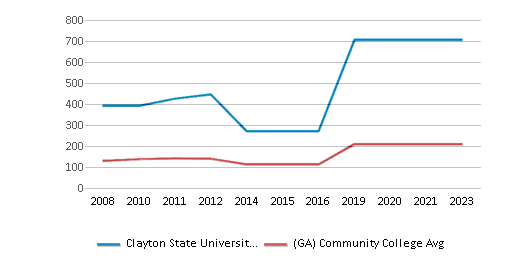
School Calendar
Student Body
The student population of Clayton State University has stayed relatively flat over five years.
The student:teacher ratio of 10:1 has stayed the same over five years.
The Clayton State University diversity score of 0.58 is less than the state average of 0.71. The school's diversity has stayed relatively flat over five years.
Total Enrollment
7,169 students
2,242 students
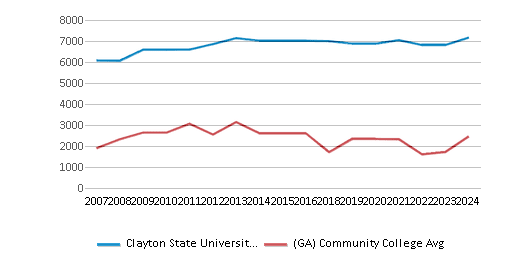
Student : Teacher Ratio
10:1
18:1
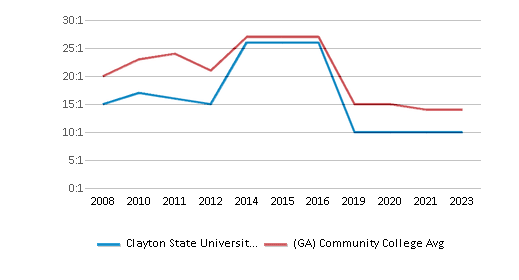
# Full-Time Students
3,650 students
882 students
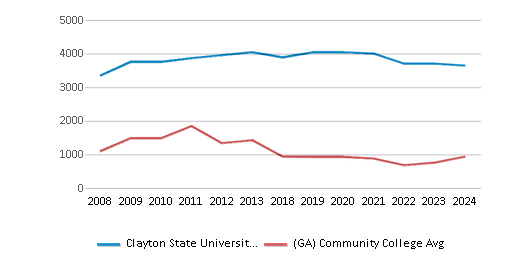
# Part-Time Students
3,519 students
1,722 students
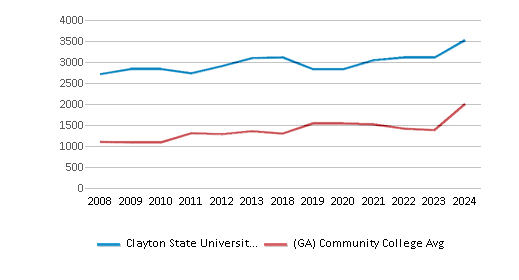
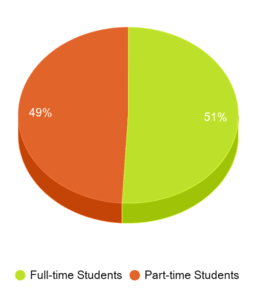
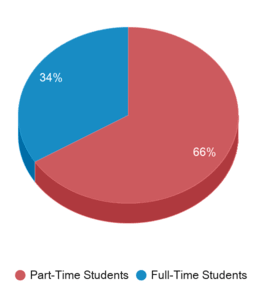
# Enrollment Undergraduate
643 students
299 students
# Full-Time Undergraduate Students
3,362 students
929 students
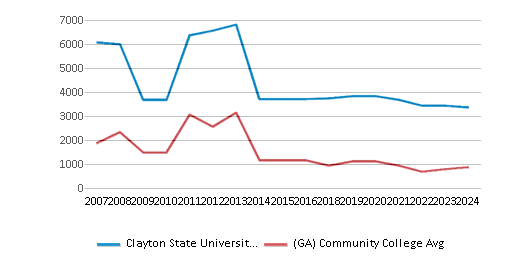
# Full-Time Graduate Students
288 students
87 students
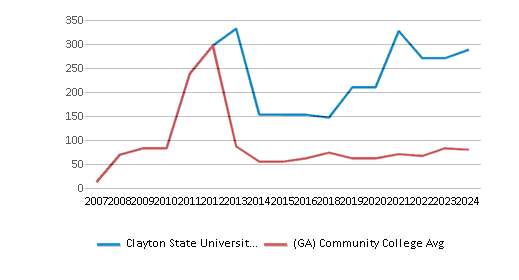
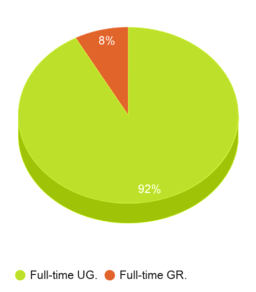
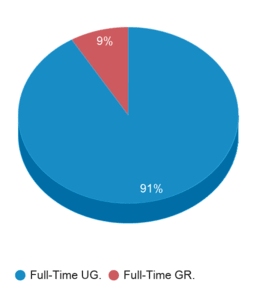
# Part-Time Undergraduate Students
3,074 students
1,891 students
# Part-Time Graduate Students
445 students
53 students
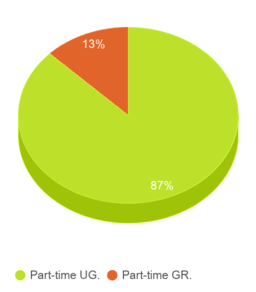
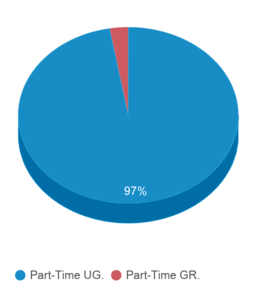
Total Dormitory Capacity
1,296 students
654 students
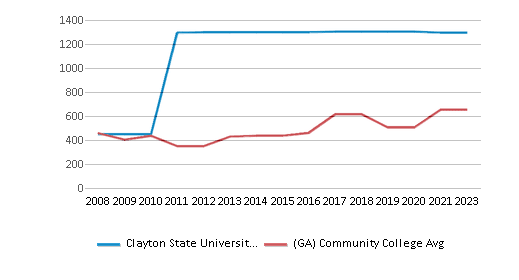
% American Indian/Alaskan
n/a
n/a
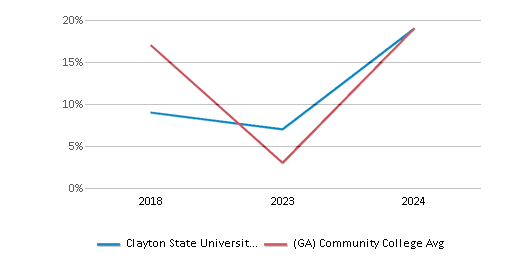
% Asian
7%
4%
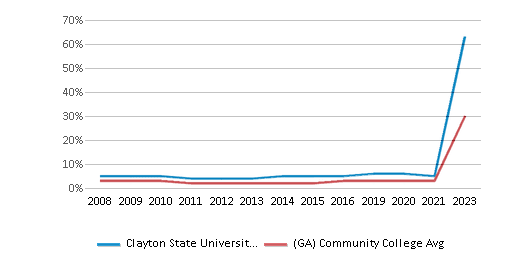
% Hispanic
10%
10%
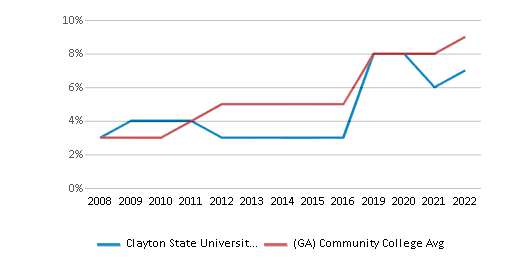
% Black
62%
35%
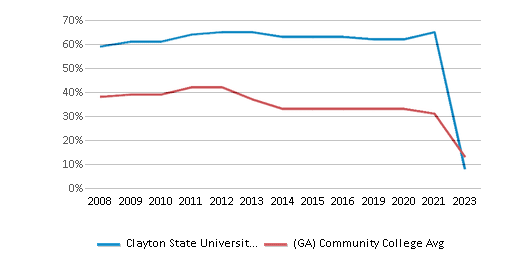
% White
13%
39%
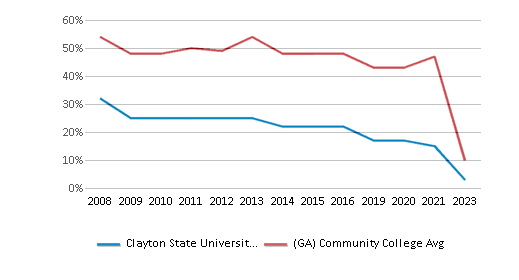
% Hawaiian
n/a
1%
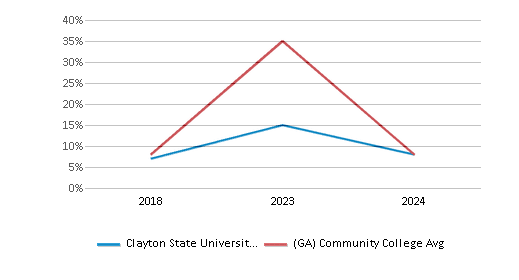
% Two or more races
3%
3%
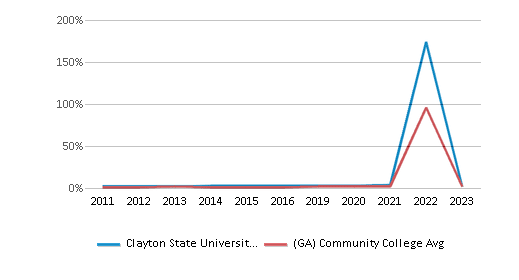
% Non Resident races
2%
1%
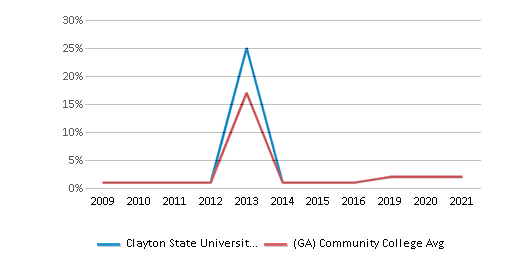
% Unknown races
3%
7%
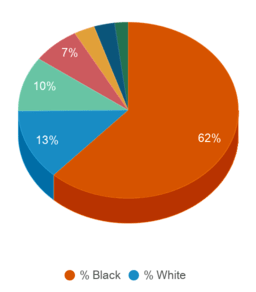
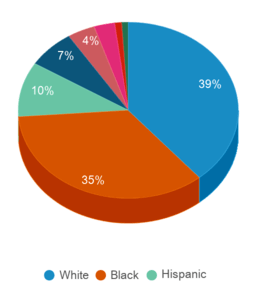
Diversity Score
0.58
0.71
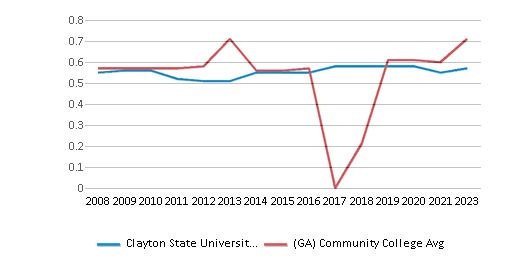
College Completion Rate (Students who graduate in less than 4 years)
n/a
0.4279%
College Completion Rate (Students who graduate in 4 years or more than 4 years)
0.3449%
0.2368%
Average Graduate Earnings (10 Years)
$41,700
$29,500
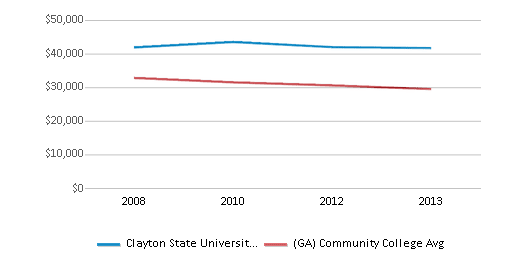
Tuition and Acceptance Rate
The public in-state tuition of $5,246 is more than the state average of $3,120. The in-state tuition has declined by 5% over four years.
The public out-state tuition of $15,251 is more than the state average of $6,995. The out-state tuition has declined by 6% over four years.
In-State Tuition Fees
$5,246
$3,120
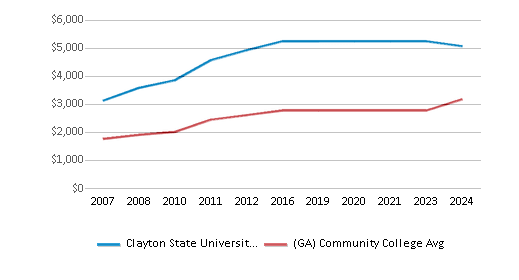
Out-State Tuition Fees
$15,251
$6,995
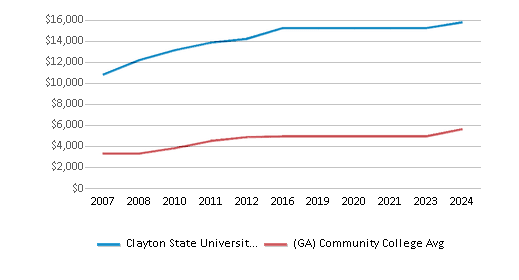
% Students Receiving Some Financial Aid
91%
93%
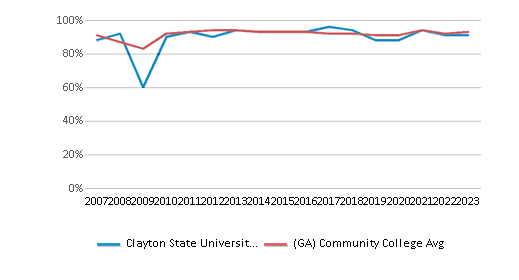
Median Debt for Graduates
$26,865
$12,139
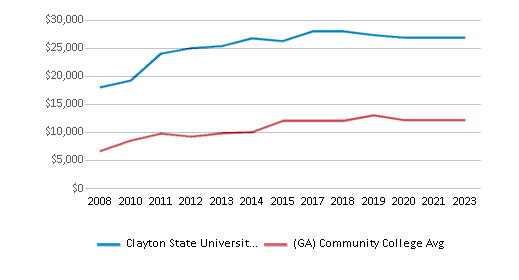
Median Debt for Dropouts
$11,000
$5,500
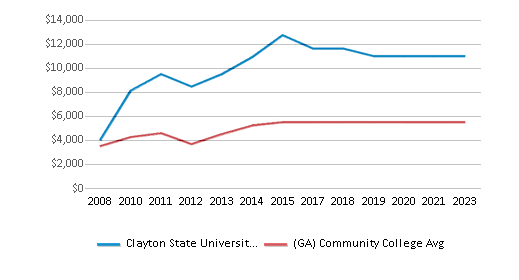
Acceptance Rate
63%
75%
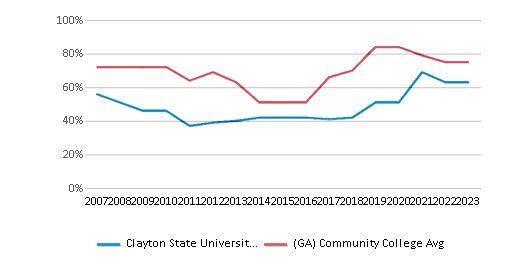
SAT Reading
470
533
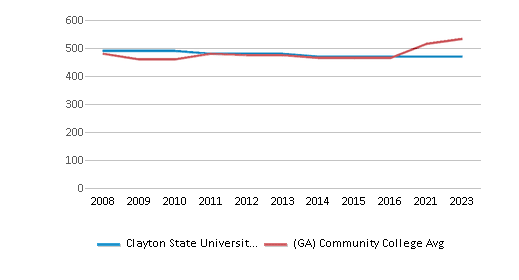
SAT Math
460
515
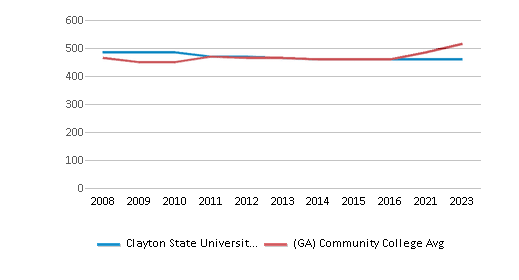
SAT Writing
475
440
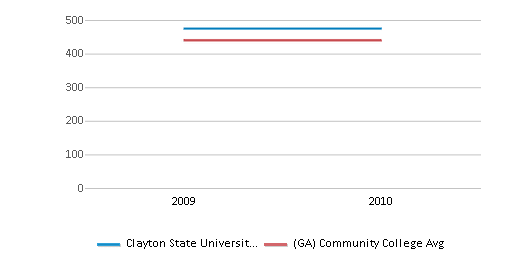
ACT Composite
20
20
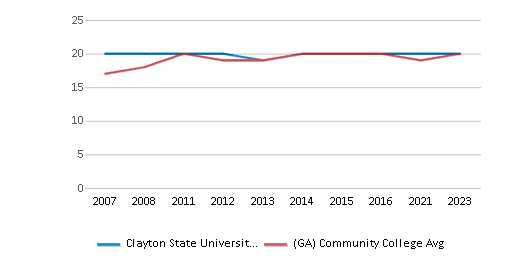
ACT English
20
19
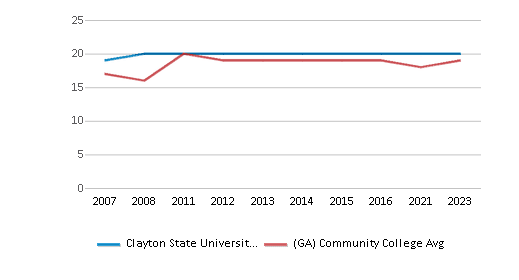
ACT Math
20
20
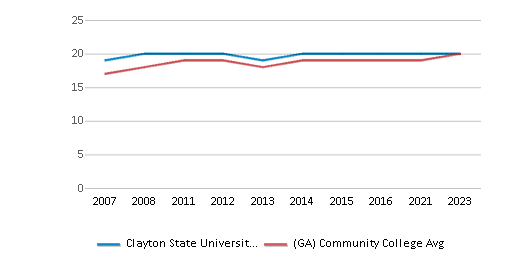
ACT Writing
n/a
7
Source: 2024 (or latest year available) Integrated Postsecondary Education Data System (IPEDS)
Frequently Asked Questions
How much does Clayton State University cost?
Clayton State University's tuition is approximately $5,246 for In-State students and $15,251 for Out-State students.
What is the acceptance rate of Clayton State University?
The acceptance rate of Clayton State University is 63%, which is lower than the state average of 75%.
What is Clayton State University's ranking?
Clayton State University ranks among the top 20% of community college in Georgia for: Largest student body.
Recent Articles

How To Craft the Perfect College Admissions Essay
Read on to learn the ins and outs of crafting the perfect college application essay.

Obtaining Your Bachelor's Degree at a Community College
Explore the evolving landscape of community colleges offering bachelor's degrees, addressing affordability, accessibility, and workforce needs.

A to Z of Community College Certificates and Courses
From business and healthcare to technology and skilled trades, the article showcases the breadth of options available to students seeking to enhance their knowledge, develop new skills, or pursue career advancement.



![🎓 Congratulations, Clayton State University Class of 2023! 🎓As the journey comes to an end, we proudly present the remarkable/funny stories and invaluable advice from the graduates of Clayton State University. Join us in celebrating their achievements and the incredible memories they've made during their time here.Like, comment, and share their stories as they prepare to take the next steps towards a bright and promising future. We couldn't be prouder of these remarkable individuals. Go Lakers! 🧡💙🎉 Clayton State University - Congratulations class of '23! [Spring Commencement 2023]](https://i.ytimg.com/vi/UiSwjDNAYiA/0.jpg)
![Ceremony Dates and Times
Friday, May 5, 2023
3:00 PMSaturday, May 6, 2023
9:00 AM
12:00 PMCongratulation Graduates!Commencement is a celebration of new beginnings! On May 5 and May 6, we will be celebrating the commencing of a new phase of life for our Clayton State graduates. Along with families and friends, we will be recognizing our graduates for their great achievement. Clayton State University - Spring 2023 Commencement Live Stream [Sat., May 6, 2023, 12:00 P.M.]](https://i.ytimg.com/vi/yTuPG0LqIVg/0.jpg)




